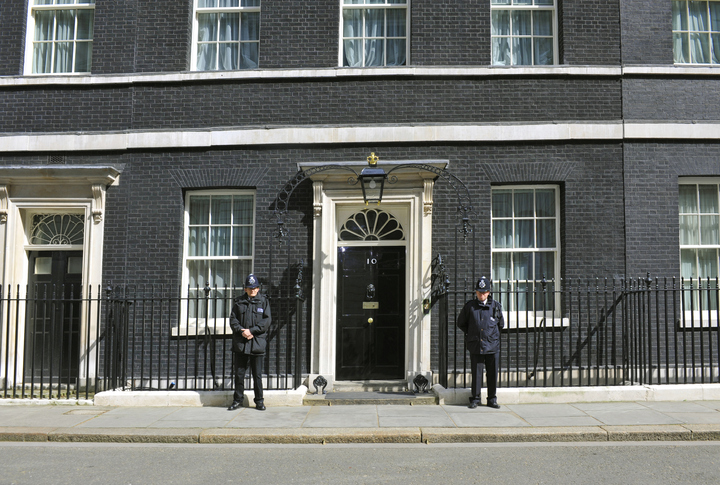Rishi Sunak on Immigration
After several tumultuous months in British politics, Rishi Sunak was “coronated” as UK prime minister on Tuesday 25 October. Callum De Freitas considers whether the new PM will take a different tack on immigration matters to Johnson or Truss.
Our article below on Liz Truss’s immigration policy has quickly become outdated, with the former prime minister spending just 50 days in office, after the global market’s response to her mini-budget rapidly eroded confidence in her short-lived government. Following a rushed leadership contest, primarily fought between Rishi Sunak and Penny Mordaunt, Sunak has been made leader of the Conservative party by his fellow Conservative MPs and, thereby, prime minister of the United Kingdom. While the UK’s economic situation continues to worsen, immigration policy will likely be a key focus of Sunak’s government, as it was for the governments of Cameron, May, Johnson and Truss.
Sunak’s parents migrated to the UK from Kenya and Tanzania, and Sunak has repeatedly brought up their immigrant background as supposed evidence of his humble roots. One might therefore expect that Sunak’s immigration policy would be more migrant-friendly than his predecessors’, whether in practice, rhetoric, or both. However, the current evidence would suggest that this is anything but the case.
Sunak made his government’s approach clear in his inaugural Prime Minister’s Questions, on Wednesday 26 October 2022. When asked about the controversy surrounding his Home Secretary, Suella Braverman (more on her later), Sunak fired back by accusing Labour of being “soft on crime and in favour of unlimited immigration” while Braverman “will be focused on cracking down on criminals and on defending our borders”. The rhetoric of “defending” the borders and directly comparing immigrants to criminals is likely indicative of the sort of treatment migrants can expect under Sunak’s yoke.
Truss had been planning to ease restrictions on work visas for jobs in shortage sectors, such as social care and fruit-picking, as part of a set of supply-side reforms to the UK economy. But, following Sunak’s coronation, 10 Downing Street has confirmed that plans for a series of papers setting out these supply-side reforms had been scrapped. Sunak’s official spokesperson commented “Meeting our manifesto commitments remains important. The prime minister has been very clear on that. And that relates to net migration as well, where we said it should come down.”
In terms of actual policy, Sunak has outlined a 10-point plan on immigration. This plan includes tightening the definition of who qualifies for asylum in the UK, instituting a cap on the number of refugees that the UK accepts, strengthening immigration enforcement by increasing the resources available for “raids”, and increasing cooperation with France to stop small boats crossing the Channel; or, as Sunak calls it, “holding the French to account”.
Sunak has also voiced his support for the Rwanda policy, stating that he will “do whatever it takes to get our partnership with Rwanda off the ground”. Under the Rwanda policy, migrants who make “dangerous or illegal journeys” to the UK can be deported to have their asylum claims processed in Rwanda. You can read more about this controversial policy below.
Sunak is not alone in his support of the Rwanda policy – his newly reappointed Home Secretary, Suella Braverman, has said that it is her “dream” and “obsession” to see a plane flying asylum seekers to Rwanda. Braverman was Home Secretary under Truss, but was forced to resign after she sent sensitive Home Office documents from her personal email to a fellow MP, in serious breach of ministerial rules. The Leader of the Opposition, Sir Keir Starmer, questioned whether Sunak’s reappointment of Braverman was part of a “grubby deal” to shore up his bid for leadership – Sunak said of Braverman that “she made an error of judgment, but she recognised that, she raised the matter and she accepted her mistake.”
We have already covered Braverman’s approach to immigration below. Since the publication of that article, Braverman has drawn further fire from critics, after she raised her “reservations” about the UK’s trade deal with India, stating “Look at migration in this country – the largest group of people who overstay are Indian migrants”. It seems unlikely that Braverman will deviate from her apparent views on immigration policy anytime soon, and those wanting a more migrant-friendly Home Secretary may have to hold out hope for another national security slip-up forcing Sunak’s hand.
We will of course keep an eye out for any further news on Sunak and Braverman’s immigration policy and will make sure to keep you up to date.
If you have any immigration queries, please do get in touch at [email protected]

